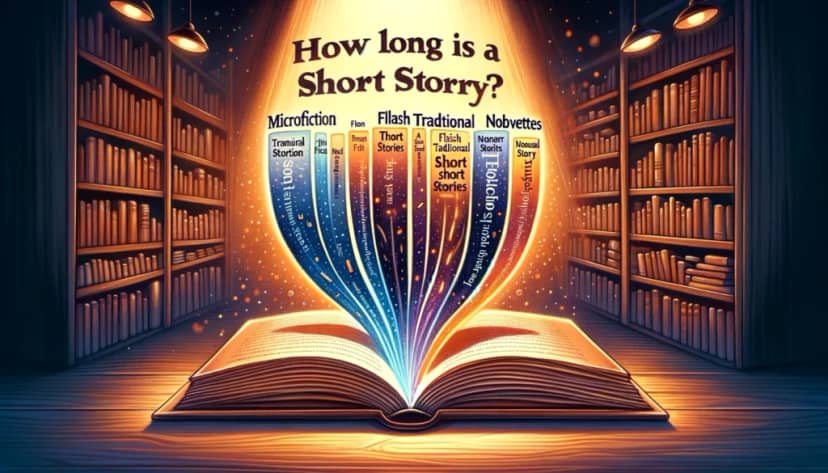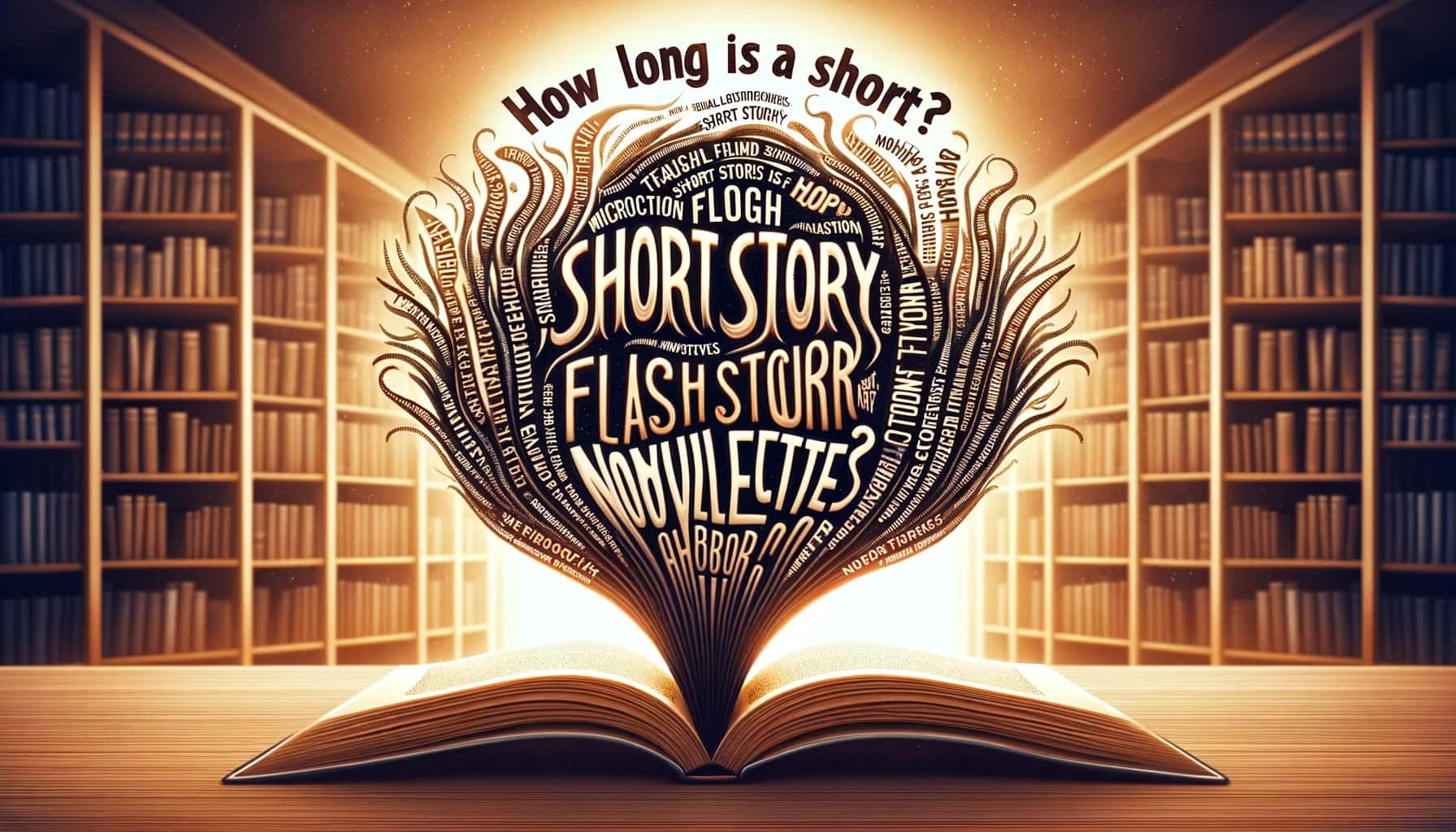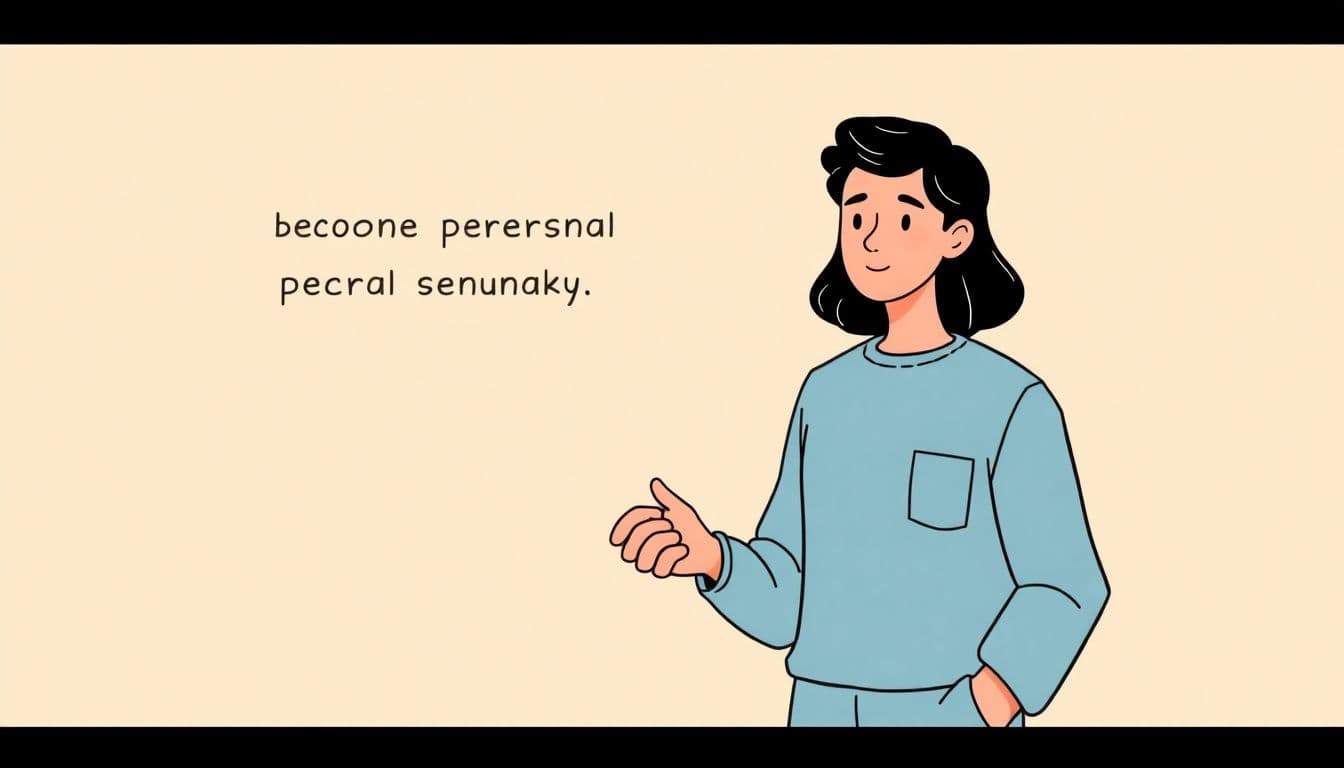Table of Contents
Have you ever wondered how long a short story should be? It’s a common question, especially when you’re venturing into the short story form and trying to fit your creative ideas into a specific word count guide. Writing short stories is a fantastic way to express your creativity without the long-term commitment that comes with novel writing. Pretty handy, right?
The thing is, there’s no hard and fast rules about the exact length for a short story. This flexibility is part of the charm and challenge of the medium. Depending on who you ask, you’ll get different answers, and that’s okay! It’s like having the freedom to paint a picture on a canvas that varies in size.
So, let’s dive into this together. Whether you’re looking to enter a writing contest, submit to a literary magazine, or just want to share your stories with friends, understanding the expected short story word count can really help. Plus, it’s always fun to chat about stories, isn’t it?
How Long is a Short Story?
In 2024, a short story typically ranges from 1,000 to 10,000 words, offering a complete narrative in a brief format. Most short stories fall between 1,500 and 7,500 words, which can amount to approximately 3 to 30 pages, depending on formatting and font size. Here’s a general breakdown of story lengths:
- Microfiction: Less than 100 words
- Flash Fiction: 100 to 1,000 words
- Short Story: 1,000 to 10,000 words
- Novelette: 7,500 to 17,500 words
- Novella: 17,500 to 40,000 words
- Novel: More than 40,000 words
For writers aiming to publish in literary magazines or short story collections, targeting a word count between 1,500 and 5,000 words is often ideal. Many publications prefer submissions within this range, making it a sweet spot for emerging and established short story writers.

Depending on where you’re planning to submit your story, or if you’re entering a writing contest, this range can shift. Some magazines or competitions have their own specific requirements.
For example, you might find a contest that caps entries at 5,000 words max. On the other hand, certain publications might be looking for shorter pieces, encouraging submissions that are no longer than 2,000 words.
The key is to always check the guidelines of wherever you’re submitting to. They’ll tell you exactly what they’re looking for, and sticking to those requirements not only increases your chances of getting published but also challenges you to mold your story within those boundaries.
It’s a bit like a puzzle, figuring out how to perfectly fit your ideas into the word count you’re given.
However, if you are writing for fun or plan on self-publishing on one of the platforms like Amazon KDP or others, you can write your short story to be as long (or short) as you like. But, again, some general range for the short story is between 1000 and 7500 words.
Understand Different Short Story Lengths

Depending on where you’re planning to submit your story or if you’re entering a writing contest, the preferred word count limits can vary. Some magazines or competitions have their own specific requirements.
For example, you might find a contest that caps entries at 5,000 words max. On the other hand, certain publications might be looking for shorter pieces, encouraging submissions that are no longer than 2,000 words.
The key is to always check the guidelines of wherever you’re submitting to. They’ll tell you exactly what they’re looking for, and sticking to those requirements not only increases your chances of getting published but also challenges you to mold your story within those boundaries. It’s a bit like a puzzle, figuring out how to perfectly fit your ideas into the word count you’re given.
However, if you are writing for fun or plan on self-publishing on platforms like Amazon KDP, you can write your short story to be as long (or short) as you like. But, again, the general range for a short story is between 1,000 and 7,500 words.
From Microfiction to Novelettes
Diving deeper into the world of short stories, there’s a whole spectrum of lengths, each with its own unique flavor. Let’s break it down:
Microfiction
These are the bite-sized treats of the storytelling world, usually under 100 words. It’s pretty amazing how these tiny tales can still pack a punch, delivering a full story or a vivid snapshot of a moment in so few words. Perfect for when you’ve got a spark of an idea that you want to express concisely.
Flash Fiction
Flash fiction ranges from 100 to 1,000 words. This is your playground for slightly longer stories that still demand brevity and precision. With flash fiction, you’ve got a bit more room to explore a plot or dive deeper into a character’s mind, but every word still has to count. Flash fiction is often considered flash fiction if it can be read in one sitting, making it ideal for quick consumption.
Short Stories
Traditional short stories typically land between 1,000 and 7,500 words. This range gives you enough space to flesh out a compelling narrative, develop stories and characters, and even weave in some twists and turns. It’s the classic format that many writers and readers love for its balance between depth and digestibility. Short stories often vary in length, but they usually provide a satisfying story arc without requiring a huge time investment from the reader.
Novelettes
For stories that straddle the line between short stories and novels, we have novelettes. These longer pieces, often between 7,500 and 17,500 words, allow for even more complexity and development. Novelettes can afford to explore subplots, delve into backstories, or present a more intricate main plot. They are sometimes referred to as a short novel due to their extended length compared to traditional short stories.
Novellas and Novels
Moving beyond, novellas range from 17,500 to 40,000 words, while novels are typically 40,000 words or more. The length of a novel allows for extensive world-building and character development. The minimum number of words for a novel is generally considered to be around 50,000 words, though this can vary by genre and publisher. Anything fewer words than that might be classified as a novella or novelette.
Each of these lengths offers its own challenges and rewards. Whether you’re crafting a micro tale that leaves readers pondering, a flash fiction with a surprise twist, a traditional short story with rich characters, or a novelette with a layered plot, there’s a format that fits every type of story you want to tell.
Why the Length Matters

You might be wondering why all this talk about word count really matters. Well, the length of the story can significantly shape how it’s received and what you can do within it. Let’s unpack this a bit.
Impact on Plot and Characters
In shorter stories like microfiction and flash fiction, you’ve got to be super selective about each word, each sentence. There’s a neat challenge of hinting at a larger world or deeper backstory without the space to spell it all out. It’s about making every detail work double time, both moving the plot forward and revealing character.
As stories grow longer, into traditional short stories and novelettes, you gain the room to let your characters breathe a bit. You can spend time showing us who they are through their actions, thoughts, and interactions with others. You can build a world that feels lived-in and craft a plot that twists and turns, pulling the reader along for the ride. Stories tend to become more complex as their length increases, allowing for deeper exploration of themes and character development.
Publication Opportunities
Word count is important not just for storytelling but also for where your story can fit in the wider world. Publications and contests have their own rules about story lengths, and sticking to these isn’t just about following rules—it’s about respecting your audience and platform.
Whether it’s a magazine editor or a contest judge, they’re looking for stories that fulfill their criteria, and word count is a big part of that. Submitting a story that meets their guidelines shows that you understand and respect their needs, increasing your chances of getting your short story published.
Also, shorter works are often sold at a lower price, making them accessible to a wider audience. Understanding the typical short story length helps you position your work appropriately in the market. Short stories tend to have a quicker turnaround in terms of writing and publishing, which can be advantageous for writers looking to build their portfolio.
Tips for Writing a Short Story

Writing a short story that fits neatly within a specific word count can feel like a tightrope walk, but it’s totally doable with some smart planning and editing. Let me share some tips that can help you nail it.
Planning Your Story
- Start with the End in Mind: Know where your story is headed before you dive in. Having a clear ending can help you plot a direct path there, ensuring every word pushes the story forward.
- Outline Sparingly: Sketch out the main beats of your story—the introduction, the conflict, the climax, and the resolution. This roadmap can keep you focused and prevent detours that inflate your word count unnecessarily.
- Choose Your Moments: In short stories, not every scene can be a deep dive. Pick a few key moments for detailed scenes and summarize or cut the rest. You’re writing within a limited space, so every scene should serve a purpose.
Editing and Refining
- Trim the Fat: Once you have your draft, go back and cut anything that doesn’t serve the story’s core. Adjectives, adverbs, and any decorative prose that don’t add value? Be ruthless and cut them out.
- Focus on What’s Essential: Look at your characters, subplots, and descriptive details. Keep only what’s absolutely necessary for the reader to understand and enjoy the story.
- Dialogue and Action Over Description: Show your story unfolding through action and dialogue rather than lengthy descriptions. This keeps the pace up and the word count down.
- Wait Until You Finish the First Draft to Go Back and Tighten: It’s often best to get all your ideas down first. Once the initial draft is complete, you can go back and tighten the narrative, ensuring it fits within your desired word count.
- Seek Feedback: Sometimes, we’re too close to our work to see what can be cut or condensed. A fresh pair of eyes can offer invaluable insights on where the story can be tightened without losing its essence.
Remember, you shouldn’t write more than necessary, but you also don’t want to leave out crucial elements that make your story engaging. Balancing brevity with depth is key in the different types of writing within the short story spectrum.
Famous Short Stories and Writers
Exploring the works of famous short story writers can offer inspiration and insight into the craft. Authors like Ray Bradbury have mastered the art of the short story, creating memorable tales that have stood the test of time.
For instance, Edgar Allan Poe’s “The Fall of the House of Usher” demonstrates how a story can be both concise and deeply haunting. It’s a work of fiction that delves into themes of madness and family decay within a compact narrative.
Other notable authors include:
- Ernest Hemingway, known for his minimalist style and the famous six-word story: “For sale: baby shoes, never worn.”
- Alice Munro, whose short stories delve deep into the human psyche and everyday life.
Reading a variety of short stories, from classic to contemporary, can help you understand the types of writing and how they can vary in length.
Conclusion
We’ve journeyed through the ins and outs of answering the question how long is a short story and seen that it’s not just about numbers but about the essence of storytelling within a framework. Whether you’re weaving microfiction or crafting a novelette, each word counts, each story speaks.
Embracing the variety of short story lengths offers a playground for creativity and expression. It’s about finding the right space for your narrative to flourish and connect with readers. Remember, the length of a short story is as much about its impact as its word count. Happy writing!
FAQ
Can a short story be 1000 words?
Yes, a short story can be 1,000 words. This length falls within the range of flash fiction and the lower end of traditional short stories, offering enough space for a succinct, impactful narrative.
Is 1500 words a short story?
Yes, 1,500 words is considered a short story. It’s ideal for flash fiction and the beginning range of traditional short stories, allowing for more complexity while still being concise.
Is 1 page a short story?
A one-page story, typically around 250 to 500 words, can qualify as microfiction or flash fiction, depending on the exact word count. While brief, it can still deliver a complete narrative or powerful snapshot.
How long is a short story in paragraphs?
The length of a short story in paragraphs varies widely, as it depends on the story’s overall word count and the length of each paragraph. There’s no set number, but shorter stories will naturally have fewer paragraphs.
How long is a novel?
A novel is typically considered to be over 50,000 words, though some define it as any work over 40,000 words. This length allows for detailed plot development, character arcs, and thematic exploration, differentiating it from shorter forms like novellas and short stories.
How many pages would 3,000 words be?
Approximately, 3,000 words equate to about 6 to 12 pages, depending on formatting, font size, and spacing. This length is common for short stories and can provide enough space to develop a compelling narrative.
What is the minimum number of words for a novel?
The minimum number of words for a novel is generally considered to be around 40,000 to 50,000 words. Anything fewer than that might be classified as a novella.
Should I wait until I finish the first draft to go back and tighten my story?
Yes, it’s often recommended to wait until you finish the first draft before you go back and tighten your story. This allows you to get all your ideas down without interrupting the creative flow. Once the first draft is complete, you can edit for clarity, coherence, and to meet your desired word count.
Can short stories vary in length?
Absolutely! Short stories often vary in length, ranging from a few hundred words to up to 10,000 words. The length depends on the story you’re telling and the types of writing you prefer.
How long should a short story be?
There’s no strict rule, but a typical short story ranges from 1,000 to 7,500 words. However, the ideal length depends on the story’s needs and the platform where you intend to publish it.
By understanding the average word count, page count, and different types of writing, you can better navigate the world of short stories. Whether stories are meant to be read in one sitting or developed into longer works, knowing the length for a short story is essential for any short story writer.



